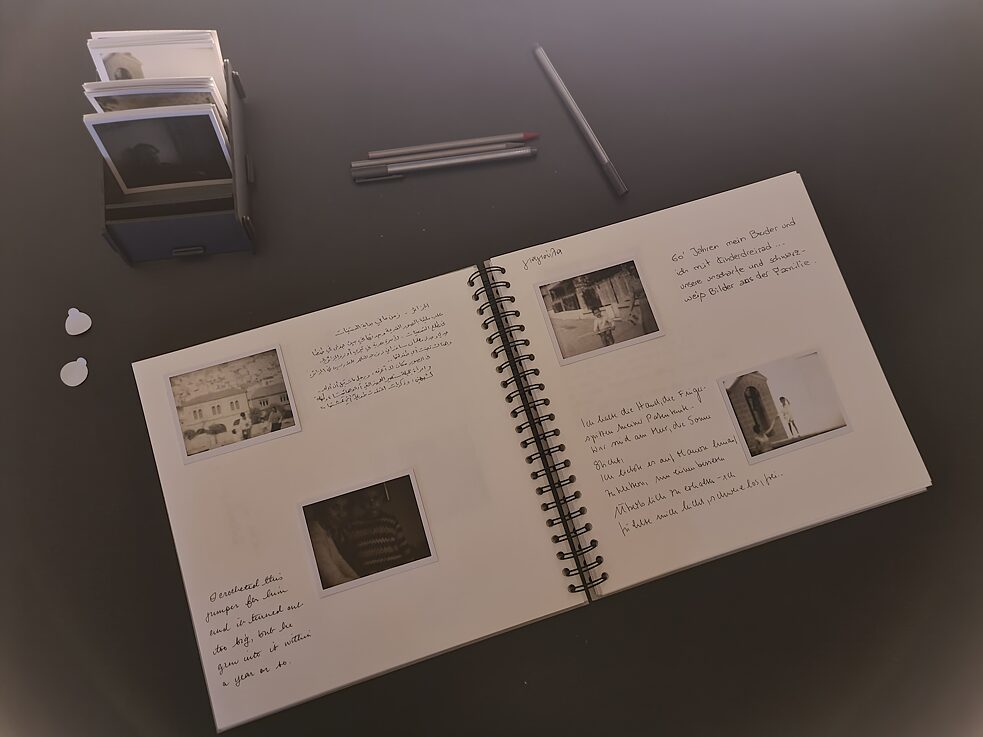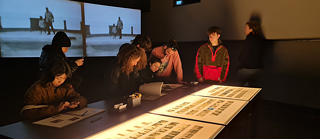Each year, the Berlinale's Expanded Forum section selects a collection of works in which film blends with other art forms, going beyond the medium of film in the creator's self-expression. The Enlarged Forum has selected 11 works of art for Berlinale 73, including three by Arab artists: "Comrade Commander, it's nice to see you" by Lebanese Walid Raad, "On the beach, here" by Jasmina Metwaly, who lives between Cairo and Berlin, and "Borrowing a family album" by Egyptian filmmaker and visual artist Tamer El Said; the work that can be considered the jewel in the crown of this year's selection.
Every year the Berlinale’s Forum Expanded presents works that blend film with other forms of art and which push the boundaries of what cinematic art can be as a form of self-expression.The Forum Expanded of the 73rd Berlinale includes the works of eleven artists, among them three Arab artists: “Comrade Leader, Comrade Leader, How Nice to See You” by Walid Raad from Lebanon, “On This Shore, Here.” by Jasmina Metwaly, a Cairo and Berlin-based visual artist, and “Borrowing a Family Album” by Egyptian director Tamer El Said, whose work can be considered this year’s jewel in the crown.
I loosely followed the movement of people that visited the silent green Kulturquartier, where the screenings and activities of the Forum and the Forum Expanded take place. I took note of the average time a visitor spent in front of an artwork and realised that the majority eventually found themselves inside Tamer El Said’s installation. Interacting with it, they became part of it, actualizing the intentions of the artist as stated in the title: “Borrowing a Family Album.”
The Inspiration of Other People’s Memories
In the text that accompanies his work, El Said reveals his source of inspiration: his sister, whose sudden disappearance marked his childhood. Only years later did he learn the truth, that she had lost her life. But in the time that passed between her disappearance and this discovery, he invented shared memories with her, and when he came across family footage of the artist Georgios Rigopoulos, he found memories here too – in places he had never visited.The artist invites us all to embark on the quest for answers: Can other people’s memories be part of our own memory? Could we all create one collective family album together?
 Part of the exhibition is an album where visitors can add photos and their memories. On the top left is the memory that our blogger Ahmed Shawky added to the artwork.
| ©Ahmed Shawky
An Interactive Experience
Part of the exhibition is an album where visitors can add photos and their memories. On the top left is the memory that our blogger Ahmed Shawky added to the artwork.
| ©Ahmed Shawky
An Interactive Experience
“Borrowing a Family Album” consists of several elements: projectors with family video footage, slide albums showing photographs interspersed with animated clips, and, most importantly, the interactive table, where the visitor sits down and takes part in the construction of this work by choosing from a selection of photographs, pasting them into the album, and penning down a comment – maybe his own memory – about this shot, whose location is transferred from the memory of the artist to the memory of the visitor or, more precisely, becomes a shared memory of them both, even if either side feels differently towards it.The experience of this work is thus not complete without sitting at this interactive table, partaking in the process of creation, or at least diving into the pictures and memories of previous visitors. When I sat down to choose a photo, added it to the album, and wrote a personal memory on how I once browsed the photos that my grandpa took in Algeria during the sixties, I began to understand the paradox of memory: It is a frail phantasy, impossible to capture and prove, but powerful enough to bring people together, even unite them, if they want.
February 2023
